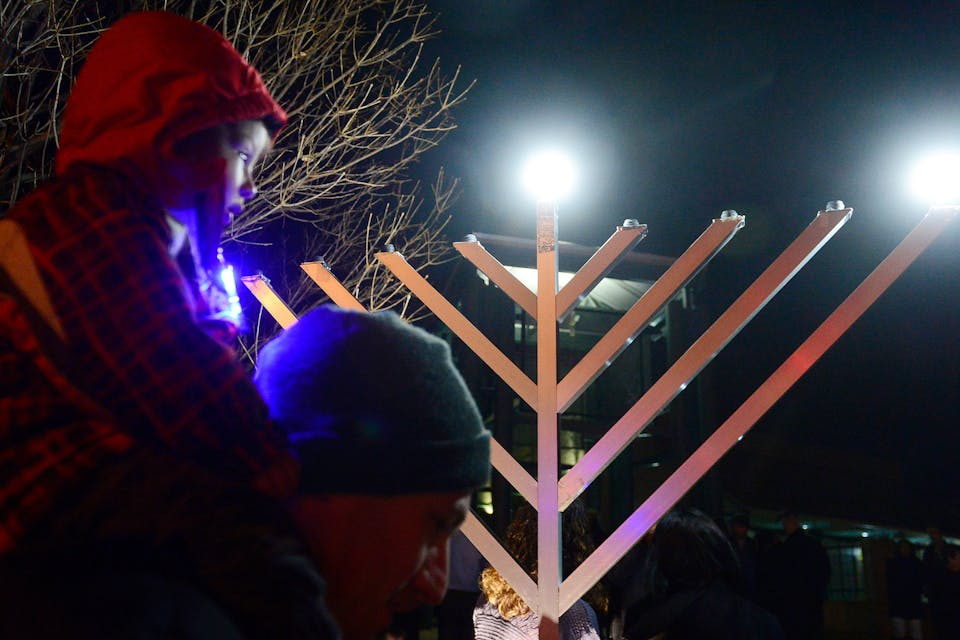
December 14, 2017
The Intellectual Struggle Hidden in Hanukkah’s Best-Known Song
The Maccabean revolt wasn’t just about independence. It was a culture war between those who embraced "Greek wisdom" and those who believed in transcendent, divine knowledge.
What have they done to my song? The medieval Ashkenazi maestro who penned the poem we now call Maoz Tsur (in English, “Rock of Ages”) might well have asked this question. True, Mordechai—his name is encoded in the first five stanzas—is a mysterious figure; one can only surmise that he lived in Central Europe near the end of the 12th century. But the lyrics of his celebrated song should leave us in no doubt: were he transported to a modern-day menorah lighting, he would be dumbfounded to hear that we have made Maoz Tsur into a song for Hanukkah—and, to boot, one commonly sung to a German melody more suggestive of Rhenish good cheer than of his simultaneously witty and very serious sweep through Jewish history and destiny.
True, Maoz Tsur is hardly the only work of Jewish poetry or prayer to find itself reinvented—its context, its melody, or even its lyrics subtly or not so subtly changed. The prayer book is full of examples. Think of Aleinu: once a unique centerpiece of the High Holy Days, a solemn proclamation of God’s sovereignty, now serving as a rapidly recited conclusion to daily prayers. Or Adon Olam, originally a sublime medieval meditation upon retiring to sleep, today a jaunty finale to the Shabbat service. Ḥasidic rebbes have gone still farther, lifting Viennese waltzes for the L’khah Dodi hymn welcoming the Sabbath or belting out Napoleon’s March at the end of Yom Kippur.
Still, however you sing Maoz Tsur on Hanukkah this year, pondering the words can inject new and surprising meaning into the holiday, and particularly if you venture beyond the first stanza to explore all six.